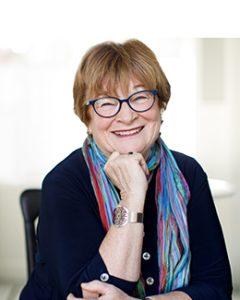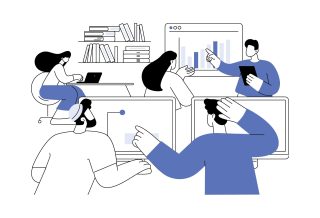IDEAS
Learning conversations
By Diane Zimmerman and William A. Sommers
Categories: Facilitation, Implementation, Learning designsFebruary 2020
Vol 41, No. 1
Read the remaining content with membership access. Join or log in below to continue.
Sed ut perspiciatis unde omnis iste natus error sit voluptatem accusantium doloremque laudantium, totam rem aperiam, eaque ipsa quae ab illo inventore veritatis et quasi architecto beatae vitae dicta sunt explicabo. Nemo enim ipsam voluptatem quia voluptas sit aspernatur aut odit aut fugit, sed quia consequuntur magni dolores eos qui ratione voluptatem sequi nesciunt. Neque porro quisquam est, qui dolorem ipsum quia dolor sit amet, consectetur, adipisci velit, sed quia non numquam eius modi tempora incidunt ut labore et dolore magnam aliquam quaerat voluptatem.
References
Andelson, S.J. (1994). The FRISK documentation materials. Available at cindymiller.wordpress.com/2008/07/08/114.
Chadwick, R. (2013). Finding new ground. Terrebonne, OR: One Tree.
Chadwick, R. (2013). Finding new ground. Terrebonne, OR: One Tree.
Goldsmith, M. (2015). Stakeholder centered coaching manual. Available at sccoaching.com.
Rock, D. (2010.) SCARF: A brain-based model for collaborating with and influencing others (Vol. 1). The NeuroLeadership Journal. Available at neuroleadership.com/portfolio-items/scarf-a-brain-based-model-for-collaborating-with-and-influencing-others.
Schein, E. (2013). Humble inquiry: The gentle art of asking instead of telling. San Francisco, CA: Berrett-Koehler.
Sommers, W.A. & Zimmerman, D.P. (2018). Nine professional conversations to change schools: A dashboard of options. Thousand Oaks, CA: Corwin Press.
Sternin, J. (1991). What is positive deviance? Positive deviance initiative. Available at positivedeviance.org.
York-Barr, J., Sommers, W., Ghere, G., & Montie, J. (2016). Reflective practice for renewing schools (3rd ed.). Thousand Oaks, CA: Corwin.

Diane P. Zimmerman (dpzimmer@gmail.com) is a retired superintendent and author.
Categories: Facilitation, Implementation, Learning designs
Recent Issues
LEARNING DESIGNS
February 2025
How we learn influences what we learn. This issue shares essential...
BUILDING BRIDGES
December 2024
Students benefit when educators bridge the continuum of professional...
CURRICULUM-BASED PROFESSIONAL LEARNING
October 2024
High-quality curriculum requires skilled educators to put it into...
LEARNING TO PIVOT
August 2024
Sometimes new information and situations call for major change. This issue...












